CREATIVE WRITING EXERCISES IN NATURE
Writing is therapeutic. Writing in nature – meditative.
Writing helps to give direction to our thoughts. From clouds of voluminous chatter in the mind, words drop on to paper like gentle rain, turning into streams of sentences. These streams follow their own path to uncover what is hidden and discover what is waiting to be discovered. It is a way to ignite creativity, curiosity and a deeper enquiry into the self.
It’s about observing the nature outside and observing the nature within.
Writing about nature leads to an increased awareness of our surroundings. This simple activity is an exercise to enhance our attention and also become aware of our own state of being. Nature is a place where one can observe our outer and inner landscape. Every person has a unique way of perceiving life and things around them. You begin to discover this uniqueness when you channelise your memories and imagination in a creative way.

Writing in nature is also a way to reconnect to a calmer self. Putting words on paper brings us back into the present moment and by paying attention to our senses and breath we can reach a state of relaxed ease. When one is relaxed and calm, it is easier to get creative insights about the questions in our mind.
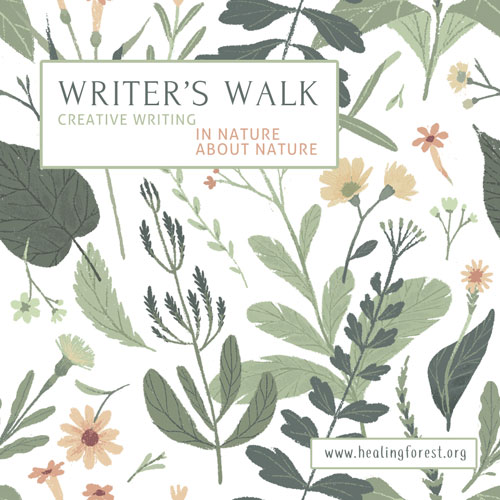
WRITING EXERCISES IN NATURE
Our mind is a forest of memories, ideas, and observations. Let us explore the power of words to rediscover the nature around us and the nature within us.
Given below is a list of simple writing games that can be incorporated into an engaging walk for all age groups. The aim of these games is to build your awareness and curiosity. We hope this practice leads you to calm, creativity and clarity.
Senses: Pick any one of your senses. Describe your surroundings keeping only the chosen sense in focus. You can turn this exercise into a letter to a friend. In the letter you are describing your nature walk to a close friend who is not present with you, but remember you can only use one sense to portray the scene.
Objects: Choose any object in nature, create a riddle around it. Let others in the group guess what object you picked. In the riddle the less you reveal, the more interesting it becomes. Just like the language of the forest which is full of riddles and mysteries.
Here’s a riddle for you. The answer is given at the very end of the article.
You can see me, but you can’t hear me.
You can feel me, but you can’t smell me.
What am I?
Emotions: Take an emotion that you are feeling. Include it in a 3 line poem. These 3 line poems are a simplified version of Japanese Haikus. The aim of our poem is to capture an image from your nature walk and convey the emotion you are left with. It’s not a test of your poetic skills and the lines do not have to rhyme. Here’s an example:
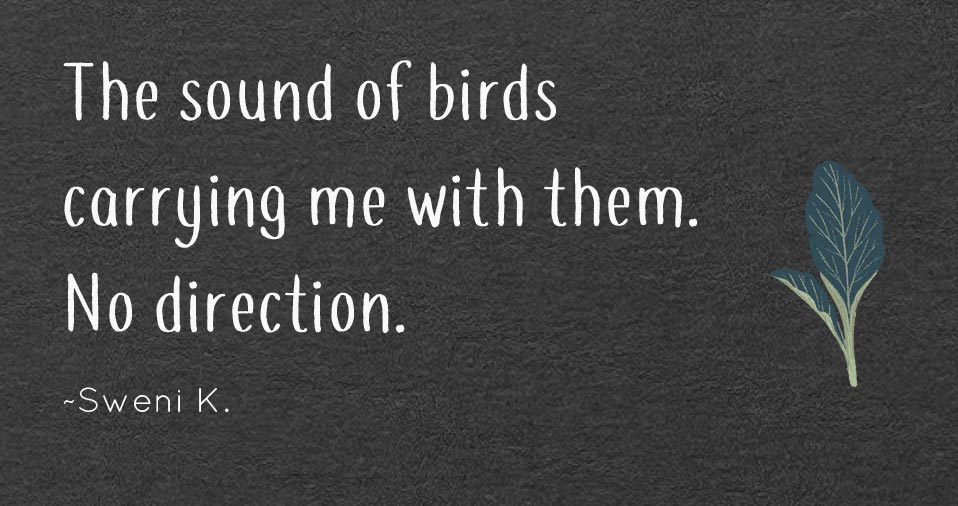
Characters: Pick the oldest tree around or a tree that feels special to you. Spend time with it and write the story of its life. In this exercise allow your imagination to fly. You can compress time and write a biography for the tree or simply write about a day in the life of your tree.

EXTRAS: IDEAS FOR NATURE WRITING
Magical Creatures: Our forest stories have always been full of magical beings like elves, fairies, gnomes. If you could create your own magical creature what would it be? What magic will they have and what would you call them?
Game of Memories: When we recollect positive memories in nature it strengthens them and allows us to return to them when we need it the most. Write down your earliest happy memory. Write down your most peaceful nature memory.
Nature Song: This is a fun exercise that gives rest to the logical, thinking side of your brain. Pay attention to the sounds of nature and write a song in gibberish. Which means you cannot use any known words from your language. Just compose a song from the sounds around you: Krr Krr Krr Krr Krr, tok tok, Ku-oo
One Word Connections: This game serves as a warm-up to our next exercise, but is also fun on it’s own. If you are in a group, form a small circle. The game starts by one person saying any word from nature. The next person says the first thing that comes to mind on hearing that word. You are not allowed to think and respond. If a participant takes too long to respond, then the chance automatically passes to the next person in the circle. Complete 2 to 3 rounds of the circle with this exercise and build your spontaneity.
Twisty Tale: This is a group exercise. Stand in a circle and create a story starting with ‘I went for a walk into the forest….’. The conditions are that each person adds one line to the story, but alternate people add happy and sad twists to the story. So one set of people are trying to make the story positive and happy while the other set is giving it a dark or tragic turn. Once the story runs its course, switch the roles of the people.

Gratitude Note (Closing Exercise)
We usually end our nature walk by writing a note of gratitude. The note starts with gratitude for the gifts we have received from nature and grows to encompass other aspects of our life.
Without gratitude, nothing is enough
~Julio Olalla
At the core of all emotions in life, this emotion of gratitude is the one that allows us to find contentment and make peace with ourselves. It shifts focus from what is missing within our life and moves our heart to appreciate what we have.
As with all writing, this exercise is effective only when the words flow from the heart and not the head. We hope that being in nature has enabled you to do so.
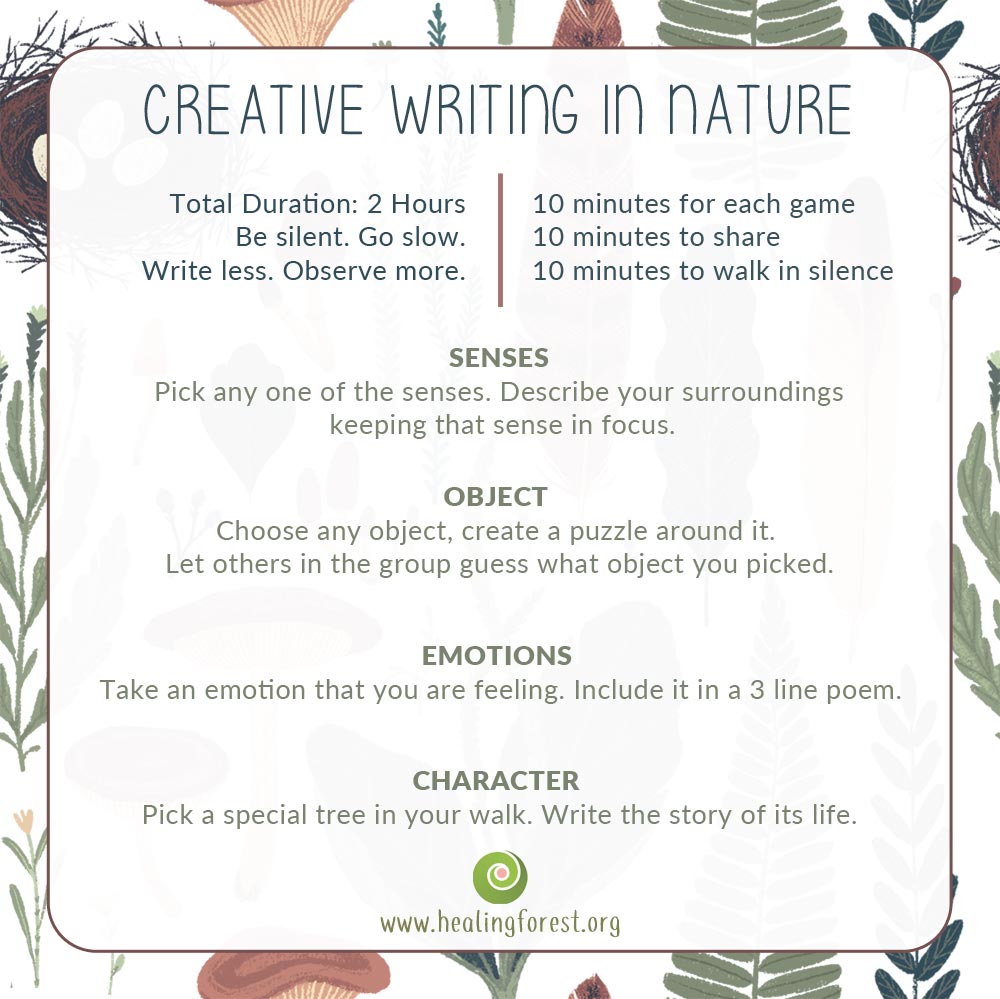
Bonus: Story Walk
A story walk session typically takes about 60~90 minutes. It is suitable for all age groups and creates more delightful results when people of different ages participate together.
Give around 15 minutes for each activity – 10 minutes for exploring, walking, writing and 5 minutes for sharing the stories. If there are a large number of participants, create smaller groups of 5 or less for sharing. Smaller groups create more meaningful engagements.
Any safe space in nature works for a story walk. Make pairs to create responsibility and manage the group better. At the end of each activity, have pre-decided meeting points for sharing stories from that section. These ideas are mere suggestions. Feel free to make your own. Stay creative.
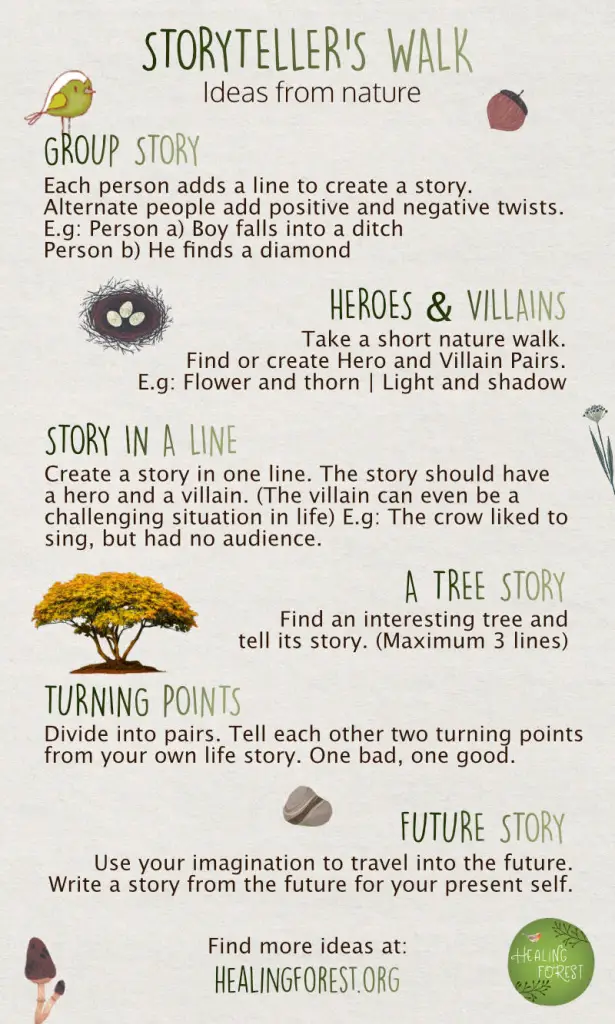
WORDS THAT HEAL
Please share this article with friends who may find it useful. Here’s a link to download some posters, in case you’d like to create an event for people in your city.
Fewer people are spending time in nature these days. This distance is affecting our health – as individuals, as a society and also as a planet. The intention of this idea is to bring nature back into conversations and inspire more people to connect with forests in creative ways. Let’s do this as a collective.
When you create writing in nature and share it with other, it spreads the seeds of emotions you felt and the insights you learnt. Hopefully, it will grow the magic of nature and draw more people to it.
Do share your poems, puzzles, stories or reflections from the nature walk on our Facebook group. In case you post your writing on social media, add these tags: #healingforest / #forestlearning. It will make it easier for us to find them.
*This page is part of our learning program with nature arts, activities and meditations from around the world.
END NOTE:
To get uplifting new ideas once a month you can join our free newsletter here. We are a small group of friends trying to find new ways to reconnect people with nature. Our aim is simple. Helping people heal. Helping forests heal.
We’d love to hear your thoughts, experiences, and suggestions for more writing games. Please add them in the comments section below to grow our collective learning.

p.s: Our answer to the riddle is ‘Sunlight‘. But in nature, there can be more than one right answer!
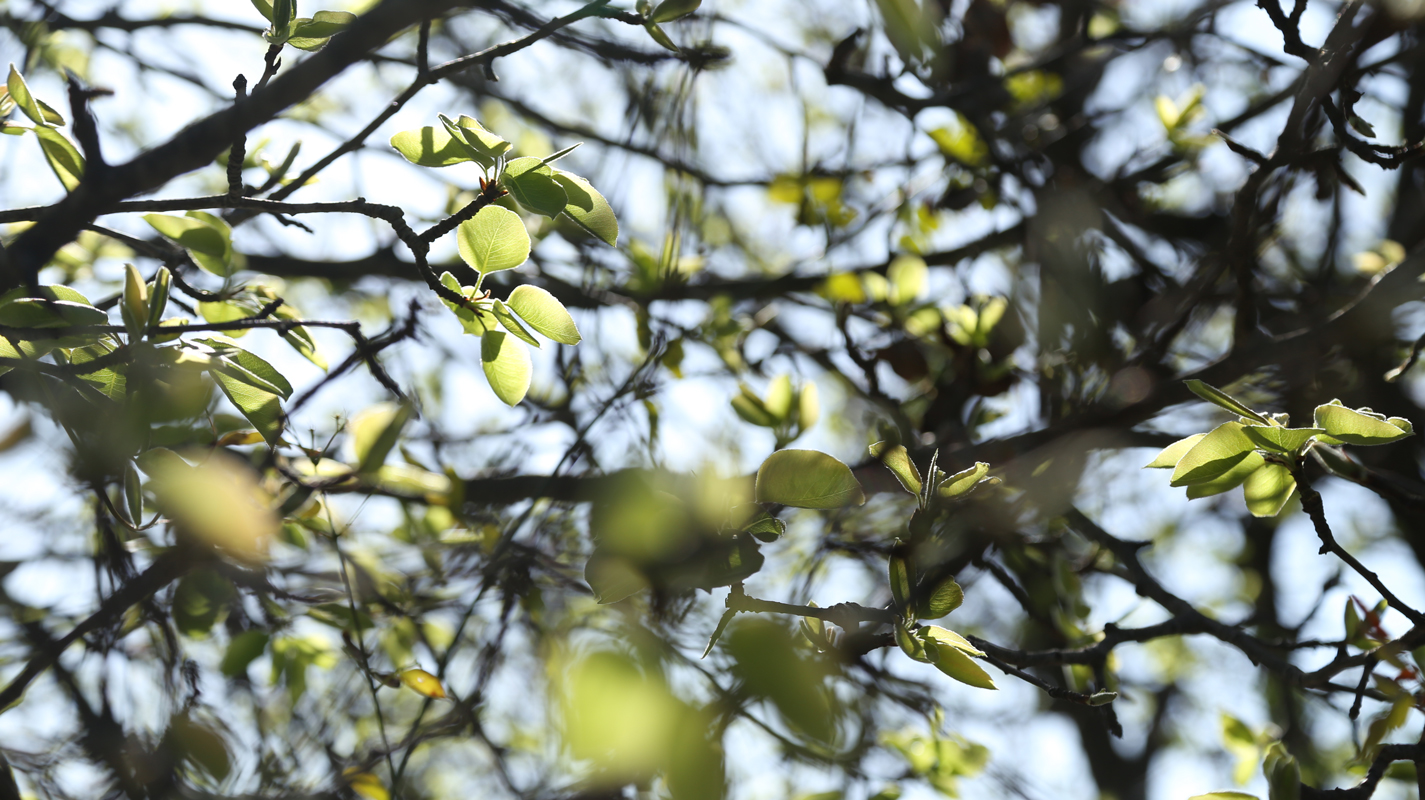

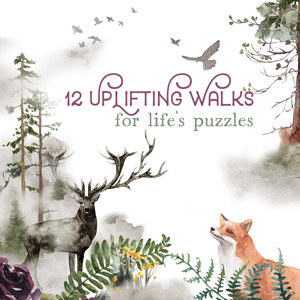
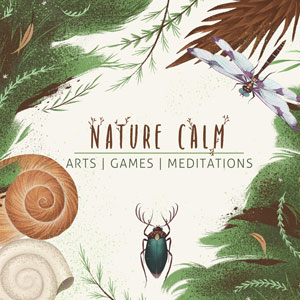
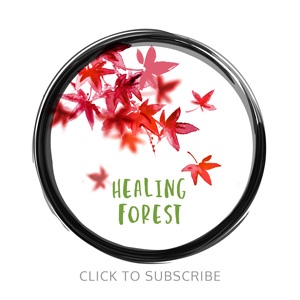
Pingback: Photos of Peace – HEALING FOREST
Open your senses and notice what you hear-smell-touch-see. Start by connecting with one sense using word association to prompt your writing. For example, seeing green = money, begin freestyle writing about money. Close your eyes and touch the tree bark, then describe what sensations immediately come to mind, allowing the words to flow on their own. Utilizing your senses is a sure way to expand your writing with more vivid detail, while also enhancing your own connection to nature, and to your readers.
LikeLiked by 1 person
Thank you for this beautiful opportunity to share our nature perspectives and writings.
I’d like to share my recently launched book now available on Amazon, “Strength from Nature—Simple Lessons of Life Taught By the Most Unlikely Masters: The Nature Teachers.”
Each chapter features everything from a scraggly weed to a rock, waves, mighty forests, butterflies and much more offering to help us face our human challenges with a greater appreciation for all life on this planet.
LikeLiked by 1 person